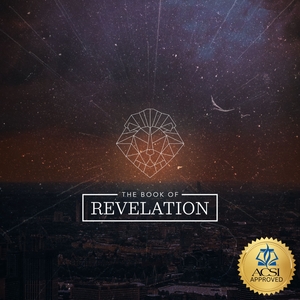Some Bible commentators maintain the "Lord's day" refers to the special day that was dedicated to the Roman emperor. It was part of emperor worship enforced by the emperor himself, on pain of death, for people to proclaim on that day: " Caesar is lord". What evidence for this is there in the bible?
The one and only time the Bible refers to the "Lord's Day," is in Revelation, Chapter 1:
REV. 1:10 I was in the Spirit on the Lord’s day, and I heard behind me a loud voice like the sound of a trumpet,
REV. 1:11 saying, “Write on a scroll what you see, and send it to the seven churches: to Ephesus, Smyrna, Pergamum, Thyatira, Sardis, Philadelphia, and Laodicea.”
John says he was in the Spirit on the Lord’s day, however, in Greek, the phrase “Lord’s day” is written as an adjective. Therefore, it should be read as a lordy day.
So when combining “in the Spirit” with a “lordy day” John seems to have been experiencing an especially spirit-filled day of prayer. It was in that prayerful attitude of submission to the Spirit that John then receives a visit from Christ, Himself declaring him to write what he sees.
Should we take this interpretation of the Lord's day into consideration, we will understand that a "Lordy Day" can be on any day of the week we are experiencing a deep time of worship and intimacy with the Lord, as John was in Revelation.
For a Jew the Sabbath is observed from sundown Friday until sundown Saturday each week. Jews also used the Sabbath day as their worship day in the synagogue. When the Jewish people observed the Sabbath each week, they were portraying a spiritual story by God's design. As they rested from their physical work each Saturday, they produced a picture of how ceasing form human work leads to a resting in God's work. The picture is of how our faith in Christ's work on the cross puts an end to our own efforts to work our way into heaven. Christ's work leads to our spiritual, eternal rest (our true Sabbath).
Therefore, in New Testament times, the early Church often met for worship on Sundays, in honor of Christ's resurrection which occurred on a Sunday. Secondly, the early church was largely Jewish and sometimes met in synagogues. Since the Jewish synagogues were in use on Saturdays for Jewish worship, Christians moved their day of worship to Sunday.
For a Christian, the traditional worship day has become Sunday, though there is no Biblical requirement to worship on a particular day of the week. More importantly, a day of worship and a Sabbath day are not the same thing. While the Bible teaches that Christians are to participate in regular corporate worship in Hebrews:
HEB. 10:25 not abandoning our own meeting together, as is the habit of some people, but encouraging one another; and all the more as you see the day drawing near.
The word of God also teaches that Christians are not under obligation to observe any Sabbath day but rather to adopt a posture of intimacy with the Lord each day.
So, rather than looking upon a specific day set aside to gather and worship, the Lord calls us to actively pursue an attitude of worship on a daily basis, which would in turn describe exactly what John describes in Revelation 1:10 when he uses the adjective to indicate a "Lordy Day." This takes the emphasis off the actual calendar day and places it on the hearts of believers as a specific attitude we are to have towards Christ.
As some scholars coin "Lord's Day," as a day of worship to the Roman Caesar during the first-century, we must follow the stance of the New Testament believers and Apostles. They proclaimed Christ is Lord, not Caesar! The Apostles and early believers did not let the temporal consequences overshadow the eternal ones as we read in Hebrews:
HEB. 10:32 But remember the former days, when, after being enlightened, you endured a great conflict of sufferings,
HEB. 10:33 partly by being made a public spectacle through insults and distress, and partly by becoming companions with those who were so treated.
HEB. 10:34 For you showed sympathy to the prisoners and accepted joyfully the seizure of your property, knowing that you have for yourselves a better and lasting possession.
HEB. 10:35 Therefore, do not throw away your confidence, which has a great reward.
HEB. 10:36 For you have need of endurance, so that when you have done the will of God, you may receive what was promised.
Scripture quotations taken from the (NASB®) New American Standard Bible®, Copyright © 1995, 2020 by The Lockman Foundation. Used by permission. All rights reserved. www.lockman.org







